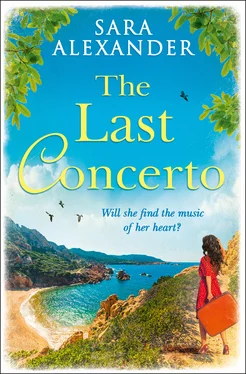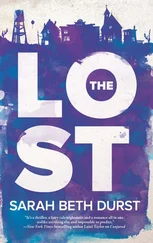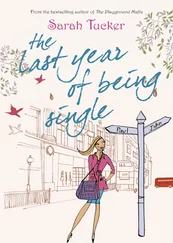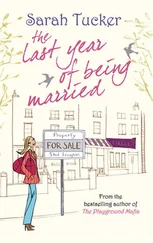1 ...7 8 9 11 12 13 ...21 ‘I’m Celeste. So very lovely to meet you, tesoro . Elena has told me so very much about you. I’m terribly excited to hear you play.’
Alba flushed, embarrassed by her embarrassment. She was about to play for a lady who appeared to value confidence and Alba wished she could find some. It was impossible, having just heard that Signora Elias had already spoken about her to a distinguished friend. It made their lessons at once less private. A secret had been divulged elsewhere too.
‘I would absolutely adore it if you would play?’ Celeste asked. Signora Elias turned towards her too. There was a different buoyancy to her this morning. Perhaps she was lonelier than Alba had thought?
‘ Si ,’ Alba replied. ‘Do you have a preference on which one I play first?’
‘Not at all,’ replied Signora Elias. ‘You must play what you feel is right for you this morning.’
Alba nodded. She scooted the stool a little way from the keys and rolled the knobs at the side up to where was comfortable. She’d never played for anyone else. Signora Elias was right. Doing so was the hardest thing. At once she was exposed, filled with doubt without knowing why. She turned back to Signora Elias, annoyed for seeking reassurance. Signora Elias responded with the calm and clarity Alba needed; an effortless smile, as if Alba playing for a stranger was the most natural thing to do this morning.
Alba took a breath. Mario’s face crisped into focus. She blew away the picture, though it remained at the fringes, like a spider’s sticky silk. ‘Clair de Lune’ was one of her favourite pieces. She allowed mind to be soothed by the fact. She began, fingers light, silver tones sparkling in a starry Sardinian night, silent, fragrant with sun-cooked rosemary and myrtle. She wove towards the midsection, letting her body move into the melody supporting her fingers. Mauves and violets replaced the metallic shimmer from the opening and then returned home, like waking from a dream. Alba lifted her fingers off, unhurried.
She turned towards the women.
Celeste was nodding her head. Signora Elias was a sunbeam.
‘My second piece is a Chopin.’
‘I should hope so too,’ replied Celeste with a twinkle.
The further two pieces wound out of Alba’s body like a story she’d lived and retold a thousand times. Then the final staccato of her last Bartók piece leaped off the soundboard with the perk of a vibrant orange. The energy of the frenetic rhythms hung in the air when she turned back to the women.
‘That’s all I have ready to share just now,’ said Alba, thrumming with a mixture of elation and relief.
‘No “just” about it, signorina,’ Celeste replied with a grin that stretched her thin crimson-painted lips. She stood up, wafting her silk kaftan behind her as she did so and planted two kisses on Alba’s cheeks.
‘And what, may I ask, do you intend to do with this talent? And the years of service my wonderful friend has invested in you?’
The question was so absurd Alba almost chuckled. Catching sight of the woman’s serious expression she stopped herself.
‘I don’t really know. I’m not sure how I could ever repay my debt.’
‘No debt to me, Alba,’ Signora Elias said. ‘Celeste is asking you whether you think you would pursue a life in music. Should you have the chance.’
Alba’s mouth opened then shut again.
‘You have undeniable talent, Alba,’ Celeste began. ‘You have a light inside you and it streams out when you play. It is unfettered. Unaffected. I listen to a great deal of young people play and very few have this, an affinity with the instrument. A respect. A lack of desire to be watched, but rather an ability to communicate with brutal honesty. Believe me when I tell you how rare that is.’
Alba longed for words, expression, something other than the numbing silence fogging her body.
‘When Signora Elias and I met at the Accademia of Santa Cecilia in Rome we were told the same thing.’
Signora Elias chuckled now.
‘It is a great responsibility – talent,’ Celeste said. ‘You were born with something to honour, nurture, share. And this fabulous woman Elias saw it right away. I can see that. She’s not as much of a fool as she looks, no?’
The women laughed in unison now. Celeste’s laughter tumbling out like a scale, Signora Elias’s voice warm, like papassini fresh from the oven.
‘It is so wonderful to meet you, Alba dear.’ Celeste stretched out her hands and held Alba’s. ‘Tell me one thing. How do you feel when you play?’
Alba took a breath. Signora Elias nodded.
‘I’ve never been asked really.’
‘I’m asking you now. And I want to see if you can be as honest with your answer as you are when you play.’
Alba let the words reach her like a lapping wave.
‘I’m not sure I can. I’m not a person who likes to describe things too well. I think that’s why I love the piano.’ Alba longed to be able to form her sensations into sentences, but the words slipped away like rivulets of water at her fingertips. She longed to explain that when she sat at Signora Elias’s instrument she had a voice to express feelings and thoughts it was impossible to in real life, when she was Bruno Fresu’s daughter, the sulky girl who couldn’t control her temper, or get through school without coming from a family that grew in influence each year. That when she played she felt protected by the music and ripped open at the same time. That the music told her things, secret stories, coded messages of what it meant to exist, in all its brutal unfathomable glory. That it lifted her into blissful invisibility. That feeling was what she loved most. Powerful because of what the music fed her. But instead of sharing her tumbling thoughts, Alba felt her expression crinkle into an awkward frown. ‘I love the piano.’ Her voice slipped out plain, without ornamentation, like a starched linen tablecloth before the plates and crystal glasses have been laid.
‘Music is mathematics and heart,’ Celeste replied, ‘it can’t just make sense nor can it be just emotional. It’s a tender, intoxicating balance. That’s why so many people give their lives to it.’
Alba let her words reach her like a longed-for promise.
‘I suspect you ought to, too.’
‘Sorry?’
‘It’s been a great honour to meet you, Alba.’
‘You too, signora.’
Up till this very moment Alba had no inkling of what she was capable of. Each time Signora Elias encouraged her, she never shook the feeling that it was an act of kindness, that her playing was good in context, for a girl who knew nothing of music, and learned in secret against the wishes of her parents, listening to the recordings on a loop till her body knew the tunes better than anything that had happened to her in real life. Did Signora Elias know that she ate all her meals, attended all her school classes, finished her chores at home with the carousel of pieces and exercises spinning in her mind; weaving incessant patterns, articulations, melodies, countermelodies?
‘You’d better head off to school now, Alba. I would hate for you to be late,’ Signora Elias said.
Alba felt she had overstayed her welcome. Her cheeks flushed in spite of herself.
‘I’ll see myself out, signora. Thank you so much.’
She left feeling that the heat and light scoring her chest as the door closed behind her had little to do with the sun batting down from above.
Alba swung her class door open so fast that the wood banged against the concrete in the same spot as the week prior when she was sent out of class for arguing with Mario.
That morning, her teacher, Signora Campo, was not in a mood to let her inappropriate entrance slide. She slashed through the clatter of students setting out their thick textbooks onto their desks, staccato thuds echoing in the stone-walled room. ‘Why are you late, Fresu?’
Читать дальше












